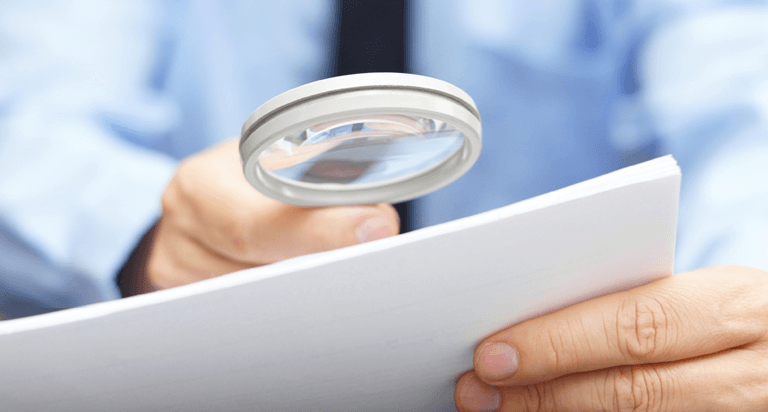After a Natural Disaster: Steps to Rebuild, Assistance and Other Resources
Highlights:
- Following a natural disaster there is a lot to think about, including your finances, important documents and how to better protect against identity theft.
- As a natural disaster survivor, you may want to directly call every loan service provider, credit card and utility companies with whom you do business.
- Checking your credit reports for suspicious activity, disputing any inaccuracies, and placing a credit freeze with all three Nationwide Credit Reporting Agencies (NCRAs) may better help protect you from identity theft.
Surviving a natural disaster comes with a range of emotions. Many people are tasked with rebuilding their homes and communities. Additionally, you may need to think about your finances, important documents, and identity theft.
If you’ve experienced a natural disaster such as a hurricane, tornado, or flood, here are some things you can do or consider as you begin to rebuild:
Replace lost or destroyed documents. It’s not uncommon to lose or have damaged important documents such as birth certificates, driver’s licenses, marriage certificates, Social Security cards, passports, naturalization and citizenship documents in the event of a natural disaster. Luckily, your state vital records office can help with birth and marriage certificates.
For other vital records, you can find links to every state’s vital records office on the CDC website, or you can find it on your state government’s website.
- For your driver's license replacement, you may be able to apply online depending on state requirements.
- To replace your Social Security card, contact your local Social Security Administration and contact the State Department to apply for a new passport.
- For replacement naturalization or citizenship documents, reach out to the U.S. Citizenship and Immigration Services.
- For all other vital documents, visit USA.gov website
Forwarding Your Mail. Many of your replacement documents may come in the mail. It’s not uncommon for delays in mail delivery or it may not be possible to receive mail at your home after a natural disaster. Consider forwarding your mail to a secure location, renting a P.O. Box, or ask your local post office to hold your mail for later pick up.
Contact your lenders and creditors directly as soon as possible. As a natural disaster survivor, you may want to call every loan service provider (this may include your mortgage, car loan and/or student loan service providers), credit card and utility companies directly if you are unable to meet your financial commitments on time.
If you’re unable to live in your home, contact your utility companies and request a suspension of services.
Some lenders or creditors have forbearance or other accommodation options in these situations. In forbearance, a borrower is allowed to temporarily postpone payments, although the debt is not forgiven. However, failing to contact lenders and creditors and making late payments or missing payments can result in penalties and may negatively affect your credit scores.
Make sure you fully understand the terms of your forbearance or other accommodation. In most cases, the deferred payments are not forgiven. Some forbearance allows deferred payments for a few months and may require the entire amount in one lump sum immediately upon the end of the forbearance period.
If your lender or creditor offers you a forbearance, deferment, moratorium or loan modification following a natural disaster, carefully study the terms of the offer before agreeing.
Place an insurance claim if applicable. This may be a good time to start the insurance claims process if your home, car, or property was damaged. If your insurance policy is lost or destroyed, you can request a copy from your agent or insurance company for coverage purposes. Your policy may also be available in your account portal online depending on your insurance policyholder.
Check your credit reports. Make sure your credit report doesn’t show suspicious activity. Through the end of 2023, you’re eligible to receive a free weekly credit report from each of the three nationwide credit reporting agencies (CRAs) – Equifax®, Experian® and TransUnion® – by visiting www.annualcreditreport.com.
Submit a Dispute if applicable. Review your credit reports carefully for any unfamiliar, inaccurate or incomplete information, including names and addresses. If there are any inaccuracies, submit a dispute with the individual credit reporting agency or agencies that have inaccurate information on your credit report.
You may also want to consider a credit freeze.
Consider freezing your credit reports. It’s important to restrict access to your credit reports at all three nationwide credit bureaus after a natural disaster especially if important documents were lost or destroyed. Below are links to assist in placing a security or credit freeze on your credit reports at all three of the nationwide CRAs. A credit freeze can better protect you from identity theft.
To place a credit freeze:
Equifax: https://www.equifax.com/personal/credit-report-services/
Experian: https://www.experian.com/freeze/center.html
TransUnion: https://www.transunion.com/credit-freeze
Beware of scams. In recent years, phishing, spoofing, and robocall scam attempts have increased, in general. Natural disaster survivors can be targets of various types of scams and fraud such as charitable and rental scams. If you’re unsure whether or not a contact is legitimate, do not give out your personal information and contact the organization directly. You can read more about spoofing scams here.
Additional Resources or Support for Natural Disaster Survivors
Federal Emergency Management Agency (FEMA)
Disaster Assistance
Department of Housing and Urban Development
Natural Disasters and Severe Weather - CDC
Natural Disasters - Homeland Security
Get your free credit score today!
We get it, credit scores are important. A monthly free credit score & Equifax credit report are available with Equifax Core CreditTM. No credit card required.



